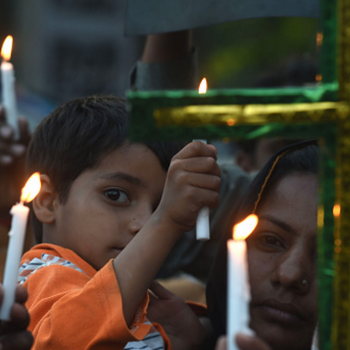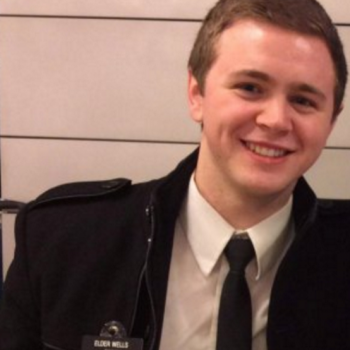Please allow me to come two days late to the party in applauding John Hinderaker’s outstanding response to efforts to minimize the role of Islam in the Boston bombings, to humanize the bombers in an effort to make them not so different from you and me. The main target of Hinderaker’s post, Megan Garber’s Atlantic essay entitled ”The Boston Bombers Were Muslim: So?” has by now been ridiculed far and wide, but I can’t resist commenting on one of its most pernicious aspects — the idea that common interests reflect some element of common character. Here’s Garber, speaking of the bombers:
They had friends and families and lives. They had YouTube accounts and Twitter feeds. They went to class. They went to work. They came home, and they left it again.
And then they did something unimaginable.
And that’s not all:
The idiosyncrasies get erased. The circumstances blur. The humanity gets whitewashed. The terrorist — the person with a lifetime’s worth of unique circumstance — becomes A Terrorist, and we load him with the freight of our own frustration.”Why would someone do this? How could someone do this?” We turn people into caricatures — we decide that they are “crazy” or “disturbed” or “ideologically motivated” or “radical” — so we can distance their actions from our own. And so that we can more easily deal with their actions in symbolic terms. “Evil” may not offer an explanation, but it does offer an answer. Sort of.
Reading this language, I was instantly transported back to my law school, where diversity was a religion, and the articles of faith contained two seemingly contradictory declarations: We are all so richly different; and we are all so wonderfully similar. By this understanding, if we just got to know each other better — and understood that we all laugh, love, and cry (and I suppose, have YouTube accounts and go to class) — then we will break down barriers of hate and prejudice that have existed for untold centuries.
There’s a word for this mindset: juvenile.
But that doesn’t stop even elements of our military from merrily believing the same thing. Just drink enough tea, spend enough time, and extend the hand of friendship, and they won’t want to kill us anymore. We won’t be “the other.” Three cups of tea, right? And that’s how countless American soldiers ended up sitting in Iraqi and Afghan homes and buildings drinking tea with people who would later try to kill them.
How about this: We are not the same. Some people who go to class and have YouTube accounts believe utterly vile and evil things. They must either be deterred from acting on their evil ideas or met with swift retribution when they do, so that others will be deterred. Some people, who also have YouTube accounts and go to class, believe things that are good and noble, and though they don’t always live up their ideals, they — and their cultures — are substantially different from and better than those dominated by evil. This should, of course, be common sense, and in fact it is for the Left when they’re talking about Alabama or Mississippi or Tennessee – terrible places inhabited by people with terrible ideologies. What about, say, Gaza and Hamas? Or Iran and the Revolutionary Guards? Or Afghanistan and the Taliban?
Well, you know, they have Twitter accounts and go to class. After all, there is no barrier too great for tolerance:
This article first appeared on National Review here.










